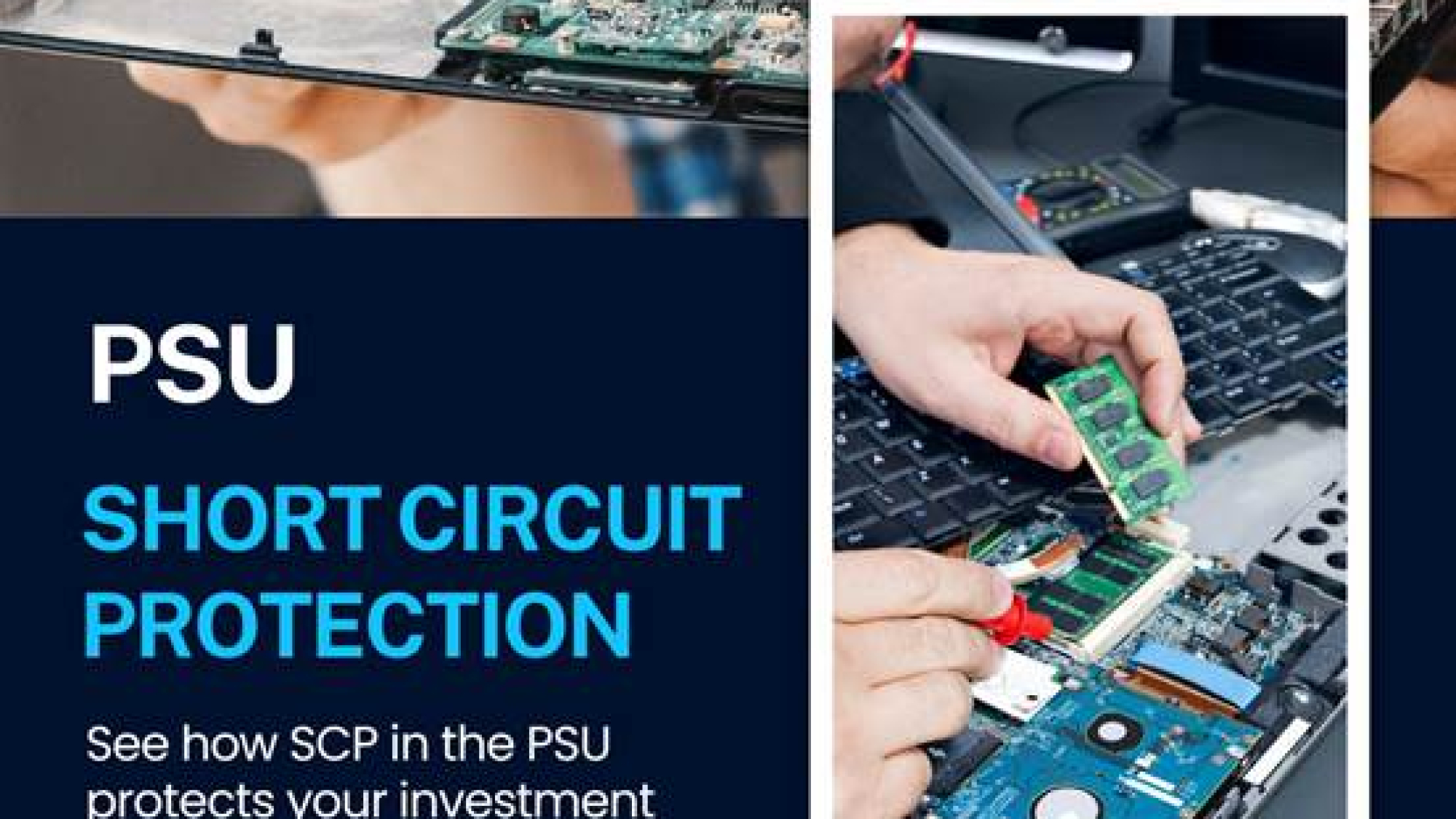So, you've probably spent hours meticulously picking out your CPU, GPU, and maybe even that fancy RGB RAM for your dream gaming rig. But there's one crucial component that often gets overlooked, yet it's the beating heart of your system: the Power Supply Unit, or PSU.
Now, before you glaze over, hear me out. Your PSU isn't just a boring box that supplies power. It's also your system's first line of defense against some pretty nasty stuff that can happen with electricity.
Those electrical nightmares can fry your precious components faster than you can say "Game Over." That's where Short Circuit Protection (SCP) comes in. It's a critical safety feature that's quietly working overtime to keep your PC, and everything connected to it, safe and sound. Keep scrolling, let's see how this guardian angel protects your investment!
What Exactly is Short Circuit Protection (SCP)?
Alright, let's peel back the layers and understand what SCP is all about.
At its core, Short Circuit Protection (SCP) is a vital safety mechanism built into your PSU that automatically cuts off power the moment it detects a short circuit.
Your PC's Personal Firefighter
So, why is this so important? Well, a short circuit is essentially an uncontrolled surge of electricity. Without SCP:
- Component Damage: That massive rush of current can instantly fry your motherboard, GPU, CPU, and any other connected component. We're talking about expensive hardware turning into useless silicon in a blink.
- PSU Failure: The PSU itself can be severely damaged, leading to its complete failure and potentially even releasing that dreaded "magic smoke."
- Fire Hazard: In extreme cases, the uncontrolled heat generated by a short circuit can even lead to a fire, putting your entire setup and even your home at risk.
The Lightning-Fast Response
The exact internal workings can get a bit technical, but here's the simplified version of how SCP generally works:
- Current Monitoring: Your PSU has dedicated internal circuitry that constantly monitors the electrical current flowing through its various outputs.
- Threshold Detection: Each output line has a pre-defined safe current limit. If the monitoring circuit detects an instantaneous surge in current that far exceeds this safe threshold, a tell-tale sign of a short circuit, it triggers the protection.
- Immediate Shutdown: Once a short circuit is detected, the SCP circuitry acts incredibly fast, essentially throwing an internal "switch" that completely shuts down the PSU's power output. This cut-off happens in milliseconds, often before any significant damage can occur.
- Latching or Non-Latching: PSUs can have either "latching" or "non-latching" SCP.
- Latching SCP: Once triggered, the PSU will remain off until you manually cycle its power (usually by flipping the physical switch on the back of the PSU or unplugging it from the wall). This gives you a chance to investigate and fix the short before attempting to power on again.
- Non-Latching SCP: Some PSUs will attempt to restart automatically after a short circuit is cleared. While this might sound convenient, it can be riskier if the short circuit isn't truly resolved. For gaming PCs, latching SCP is generally preferred for safety.

Do All PSUs Have Short Circuit Protection?
This is a fantastic question, and one that every DIYer should be asking! The short answer is: most modern, reputable PSUs do have a range of built-in protections, including SCP. However, the quality and comprehensiveness of these protections can vary wildly, especially between budget-basement units and more premium offerings.
Reputable Brands (YES!)
Major and well-regarded PSU manufacturers like Huntkey always include SCP and a suite of other protections (like Over-Voltage Protection (OVP), Under-Voltage Protection (UVP), Over-Current Protection (OCP), Over-Power Protection (OPP), and Over-Temperature Protection (OTP)).
They invest in these features to protect both your components and their brand reputation.
Budget/No-Name Brands (MAYBE, but proceed with caution)
This is where it gets tricky. Some ultra-cheap, unbranded, or generic PSUs might claim to have protections, but their implementation can be poor or even non-existent.
They often cut corners on quality components and robust circuitry to keep costs down, making them a significant risk to your system. A cheap PSU is often the most expensive mistake you can make in a PC build.
How to Know if My PSU Has Protection?
So, how do you verify if your PSU is truly safe and well-protected? Here's your checklist:
1. Check the Manufacturer's Specifications/Datasheet:
Navigate to the product page > "Specifications" > "Features," / "Protections" section. You should see a list of acronyms like:

| SCP (Short Circuit Protection) | prevents excessive current from flowing |
| OVP (Over-Voltage Protection) | Shuts down if voltage on a rail goes too high |
| UVP (Under-Voltage Protection) | Shuts down if voltage on a rail drops too low |
| OCP (Over-Current Protection) | Shuts down if current on a specific rail exceeds a safe limit (* It is especially important for PSUs with multiple +12V rails.) |
| OPP (Over-Power Protection) OLP (Over-Load Protection) | Shuts down if the total power draw exceeds the PSU's rated wattage. |
| OTP (Over-Temperature Protection) | Shuts down if the PSU's internal temperature gets too high. |
| SIP (Surge and Inrush Protection) | Protects against sudden spikes in incoming power from the wall. |
2. Look for Safety Certifications:
PSUs undergo rigorous testing by independent safety agencies to ensure they meet certain standards. Look for these logos on the PSU itself or in its documentation:
- UL (Underwriters Laboratories): Common in North America.
- CE (Conformité Européenne): Mandatory for products sold in the European Economic Area.
- TÜV: A German certification body.
- FCC: Relates to electromagnetic interference, but generally indicates a quality product.
While these certifications don't specifically guarantee SCP is perfectly implemented, they indicate that the PSU has met general safety requirements, which typically include robust internal protections.
Huntkey PSUs for Every Build
When it comes to reliable power solutions, Huntkey has been a significant player in the industry, producing a wide range of PSUs for various needs.
For the everyday user and office PC, Huntkey CP Series can support the daily browse, word processing, or light multimedia demands cost-effectively. Aspiring gamer for mid-range builds can choose Huntkey GX Series that feature Active PFC and robust protection circuits.

And enthusiasts for high-performance rigs (looking for a PSU for RTX 50 Series), you can consider our MVP Series, whose performance, efficiency, and protection features have been tested and trusted by many users.
For more powerful rigs, you can visit our website.






